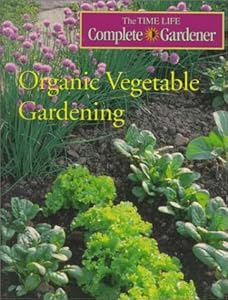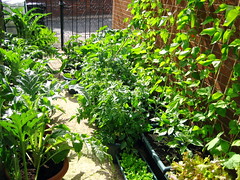| Cover via Amazon |
Organic gardening is easy though - mainly you just need to have access to three basic things: soil, water and sunlight.
What kind of organic vegetables can you plant? Well, just about everything. From broccoli, cabbage, carrots, onions, and potatoes, to tomatoes, beans, melons and more, you can pick and choose your favorites to grow. You just need to know a few basic things, like the length of growing season, how much light and water they require, and which of them can be planted during the different seasons of the year in your area.
When you have done your research, you can now buy your seeds. Remember to pay attention to the instructions on the packet, which may offer guidance on the optimal growing conditions for that particular type of plant, as well as recommended planting dates, and length to harvest.
| Vegetables (Photo credit: SteveR-) |
Your vegetables may be under attack by pests, weeds and other animals. To prevent this from happening, you may get birds, toads, and even other insects to eat them. As for other animals, putting up fences and using animal hair, essential oils, and certain spices such as cinnamon or pepper often work as good deterrents.
You will also need to pull weeds. Mulch can help with this - and also helps keep the soil from drying out. This can be made from chipped bark, garden compost, leaf moulds and manure. It should be applied at least a couple of inches deep to be effective, and leave a small space around plant stems.
Organic vegetable gardening is not that difficult, and extremely rewarding when you get to taste the fruits of your labors!
Helpful Organic Gardening Resources:



No comments:
Post a Comment